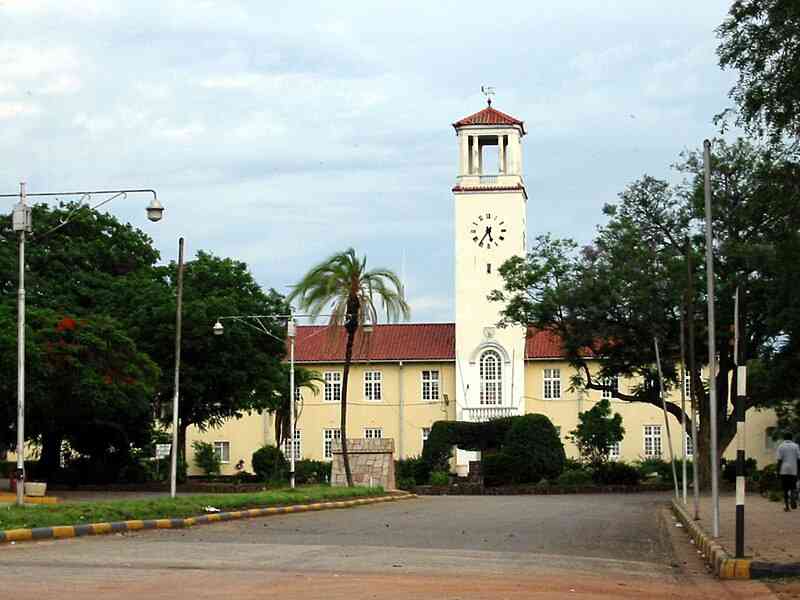
KADOMA City Council is struggling to provide essential services to its residents due to a US$24 699 030 million owed by ratepayers from January to August this year, NewsDay can report.
The council’s collection efficiency is currently between 30% and 36%, which is insufficient to address the city’s service delivery challenges.
According to Kadoma mayor Nigel Ruzario, failure to pay is largely due to the council’s inability to provide expected services.
“They are not paying because we are failing to provide expected service delivery, especially water to the residents, and for us to provide services, we need money,” Ruzario said.
Residents have expressed frustration over the council’s priorities, citing instances where money is spent on non-essential services, while basic needs such as water remain unaddressed.
Domestic high density owe council US$$15 266 586, commercial (US$2 118 820, industry (US$2 726 087), government institutions (US$288 260), schools (US$249 019), churches (US$103 263), domestic low density (US$292 2017), municipality US$83 525, tuckshops (US$$61 033), indigents (US$4 878), indigents oven (US$86 317), agro residents (US$680 718) and small and medium enterprises has a debt of US$108 508.
Some residents have not received water for the past two decades, despite paying for the service since 2015.
Carlos Nyoni, a resident, said ratepayers demanded better value for their money from Kadoma City Council.
- Kadoma council employees down tools
- Council workers, officials clash
- Faulty water metres bleeding Kadoma
- Kadoma establishes child healthcare facility
Keep Reading
“Some people have not received the services they are required to pay for. It has been mentioned many times that certain people have not received water for between five and 20 years. I have paid for certain services from 2015, which I have never received,” Nyoni said.
"People are getting annoyed because they are seeing money being spent on things which are not a priority to the residents of Kadoma.
“People are requesting transparency, engagement and accountability from the Kadoma City Council.
“I think to encourage people to pay for rates and services, there needs to be some obvious, tangible moves by Kadoma City Council to restore trust.”
Philimon Chinyoka, another resident, expressed optimism about improvement in the payment of rates.
“There is still a great chance to raise the compliance rate to at least 60%. Our figures are fairly not that bad, there is still room to improve. The general perception within residents is that we pay council bills because we have water in our taps,” he said.
“Water is the push/motivating factor for residents to pay their monthly bills to council, regardless of the fact that monthly bills are made up of other services besides water. It’s much easier to motivate people to pay their bills when they have water.
“A cross-check through other cities' financial analysis (towns and cities with better water provision to residents) will show that their compliance rates are around 60-66%. As Kadoma, we can also register such a rate as long as we have water.”
According to a recently released Auditor General’s report, Kadoma Municipality last year had 2 541 non-functional water meters, resulting in difficulties in accurately measuring water usage and charging customers accordingly.
The Kadoma Community Cooncil director Pikirai Mazanhi confirmed the huge debtors book saying failure to collect the money affected the provision of essential services such as water, sanitation and waste management.
“To address this, council needs to enhance revenue collection and communication with residents, ensuring transparency and accountability,” he said.
“Residents are more likely to settle their debts if they trust that their payments will improve service delivery. The council should develop a fair payment plan without resorting to aggressive collection methods. While increasing tariffs might be considered, it should be done cautiously due to current economic pressures.”
According to a 2023 report released by Unicef and the World Health Organisation, globally, 1,8 billion people live in households without water supplies on the premises.
Kadoma Central MP Gift Mambipiri emphasised the importance of addressing the water crisis, stating that it should be the council’s top priority.
However, the disbursement of funds from the Constituency Development Fund remains uncertain.
“Residents need to pay their rates from the current 30% so that council will be able to deliver services,” Mambipiri said.










